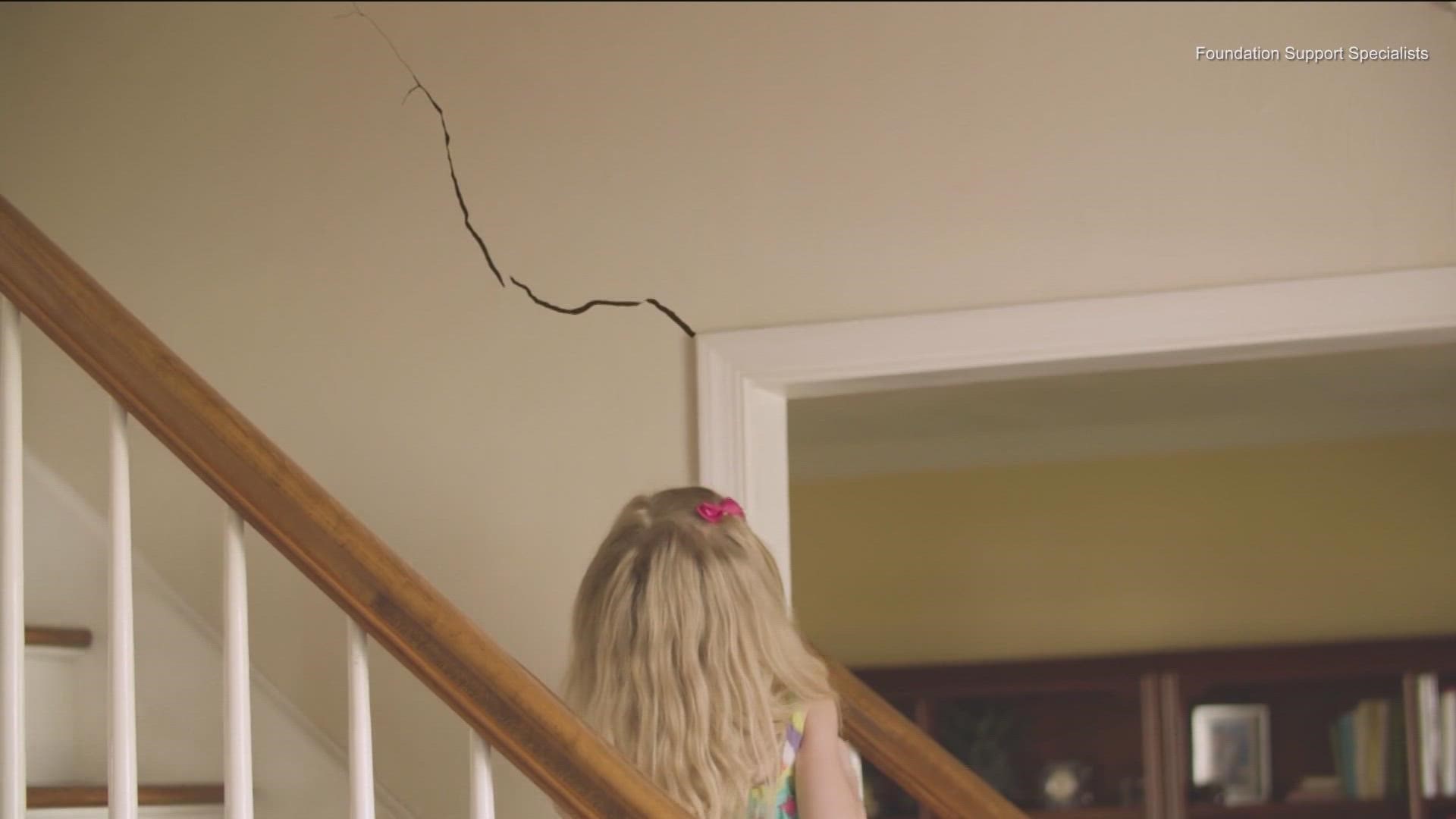AUSTIN, Texas — While levels of drought have decreased across the state, parts of Central Texas still remain under exceptional drought.
Drought affects every aspect of our lives, from the food we eat to the animals we see roaming around. One major thing it impacts is home foundations.
Here in Texas, we have a high concentration of clay in our soil. The clay contracts and expands like a sponge, making the ground that homes sit on unstable.
"When we're going through these heated seasons, we're not seeing much rain," said Paul White, production manager for Foundation Support Specialists. "You'll see the ground contracts in a lot of areas, the gaps underneath homes."
Homes usually take time to settle to the ground. But drought makes this process faster. This can get to the point that some homes start to slop, leaving them with uneven floors and cracks inside and outside the house.
White said there are other signs you should look out for.
"Might have trouble opening and closing those doors," he said. "Windows, you might have a hard time opening closing windows as well."
White said these damages are permanent and will only get worse with time.
"If you can fix that issue in a certain area and kind of beat it, while it might be a little bit lower on that scale, that's really the best thing you can do," he said. "Because if you do let it go, it just gets more expensive over time."
So, don't ignore the signs and call for help.
White said his company received about 3,000 more calls this year compared to 2021. Many people are dealing with foundation issues as drought conditions persist.
As for what solutions there are, the most common one is digging under the ground to help support the slab the house lies on.
"We use hydraulic equipment to press galvanized steel piers down to a certain pressure," White said. "And then a bracket supports the bottom side of that home."
For those curious about other solutions, some people say you should water your house. White said don't do that because too much water can cause its own set of issues.
"I've always said if you have a regular watering schedule for your lawn, keep it," he said. "That way ... if you're using a sprinkler in your yard, you're putting not too much water, but a certain amount of a reasonable amount of water into the yard. It might be able to help over time keep that ground from shrinking as much as it is."

